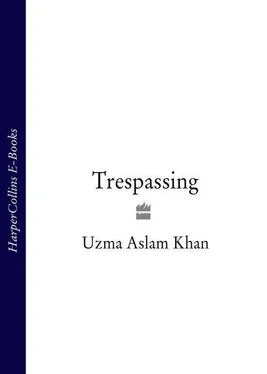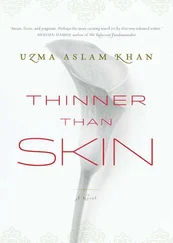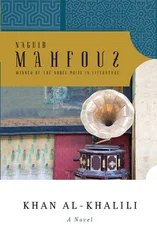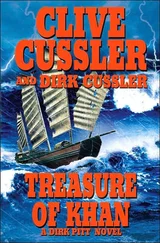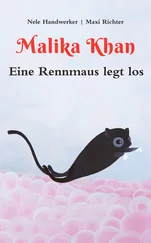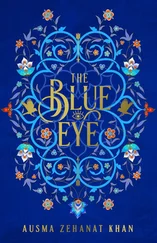She wiped her face with the hem of her kameez, in the process revealing part of her soft, flat stomach. If his timing were better, he could circle her naked waist, or lift her shirt up further. But he just wasn’t moved to do anything at all. Guiltily, he thought he’d rather be in his room, where at least he could quench his thirst and cool off under the fan.
She continued, her voice giving away none of what had passed between them in the silence. ‘Raeesa searched the crevice for a sign from him, but it was too small to reveal anything besides the darkness on his side.
‘He asked her again, “Will you meet me under the mulberry?”
‘“Yes!” she cried hurriedly. “I’ll be there.”
‘So the next night, when her family had fallen asleep, Raeesa packed a small bundle of clothes and slipped out of the house. It was indeed a new moon. Every time she looked up, more stars appeared. They seemed to shine for her and she talked back to them while crossing a field. In this way, Raeesa resisted the urge to turn back.
‘At last she heard the river. And she saw the silhouette of the tree. It hunkered over the water like a curved band of ageing men, arms askew, leaves flapping. The sky began to pale. But where was Faraz?
‘Unknown to Raeesa, Faraz had started out for the river much earlier that day. Unable to contain his excitement, he’d not worked in the field. He could focus on nothing but the prospect of at last embracing his love. But that was still so many hours away! After waiting so long, these final hours were excruciating. He wandered away from the river, thinking, then sauntering back. He paced in circles.
‘What he wanted was to declare his love openly, in broad daylight, so he could wear it proudly. He wanted to face her family, and his. Deceit would taint the beauty of what they’d have that night. They were above that.
‘He came up with another plan. He stood outside her house and told himself: If she loves me, she’ll know I’m here and come out. If she doesn’t, I’ll know her love is not true.
‘But Raeesa, counting on tonight, did not step out all day. She suffered indoors, in silence, tormented by the enormous gamble she’d committed herself to.
‘And so Faraz left. What she loved best about him — his enthusiasm, his childlike earnestness — would be their undoing.’
Daanish pouted. ‘You’re losing me: Faraz just created this problem for himself when he could finally have what he wanted?’
‘Yes. He was misguided. Mind you, I’m coming to the part that could go many ways, and you can tell me your version. Let me finish my father’s.
‘So as the sun rose the next day, Raeesa sat between the roots of the mulberry tree in disbelief. Had she made the wrong choice? Or had something happened to her beloved? Should she get help? Indecision and fear paralyzed her.
‘And Faraz, heartbroken by his own folly, roamed the village in stupefied horror, convinced it was he who’d been wronged. He was observed in this state by an old woman who counseled him thus: “Go where you agreed to go before you lose sight of where you are.” She walked away, leaving Faraz to reflect on her words.
‘Under the tree, Raeesa suddenly noticed a tiger lurking nearby. He’d come to drink at the river, licking his lips dry of gazelle blood as he sipped. When she saw the beast, Raeesa, delirious with despair, assumed the blood on his whiskers was her beloved’s. She fell before the tiger. The great cat snapped her neck, slurping an unexpected second course. Her blood sprouted up like a fountain, toward the bone-like branches caressing her, rinsing the white berries burgundy. And that’s how they got their color.’
‘I almost forgot that’s what this was about,’ Daanish frowned. Then he added, ‘I don’t like it.’
‘Well, change it then. I said it was open-ended.’
He considered this. ‘What happened to Faraz?’
‘The saddest thing is that he’d been making his way back to her. And when he finally arrived, and saw Raeesa’s carcass, he too let the cat have him. Once my father told it another way. Faraz had been excited, yes, but instead of wandering to her house, expecting her to come out, he’d simply parked himself on the banks of the river. He’d never met the old woman at the village, and he hadn’t worked the fields either. He just sat under the tree from morning till night, so when the tiger with the bloody mustache came to drink, it was Faraz who thought Raeesa had been eaten, not the other way around. And then he too dropped before the beast, so it was Faraz’s blood that turned the fruit red, and it was Raeesa who found the carcass.’
‘But either way, the tiger gets them?’
‘Yes. Another time, my father said there was a double metamorphosis. Not only did the fruit change color, but the lovers change too. They turn into tigers, and roam free through the forest, with no predators to hinder them.’
Daanish pulled her into his arms. ‘Well, let me think of another ending.’
She smiled, waiting. But his attention wandered. Would it rain again? There was lightning in the distance, and the power must have gone because a generator droned. He wished she’d be the way he liked her best: the warm, soft Dia who freed him from chaos because she knew nothing about it. He wanted her to always be that way. Not like this, slyly nudging him.
She said, ‘My father would often look over to my mother riding beside him in the car, silently requesting her input, but she never gave it. Nor did my brothers. It was just the two of us talking. After his death, I changed the story again: it isn’t a tiger that lurks around Raeesa while Faraz pities himself all day. It’s a band of dacoits. They carry pistols, shotguns, machine guns. They torment her for hours. Then they toss her in the river, where she floats beneath the stars that had been so kind on her lonely journey across the wheat field.’
Dia twisted off the cup of the thermos, saying the mugginess was making her faint. But there was no more water. ‘Oh well,’ she sighed. ‘You tell me something now.’
And then they looked at each other. Was it her story or did a shadow really flicker between them? They froze. Daanish still hadn’t told her Salaamat sometimes came here.
Cautiously, the two peeked outside. There was no one there.
MAY 1987
‘How can you be a freedom fighter if you’d rather stare at the river?’ Fatah chided, settling beside Salaamat on the beach.
Salaamat grinned. It had been years since he’d felt like this. He said, ‘Every evening after closing her teashop, my grandmother would stare at the sea till she was in a trance. She was tossing her worries out, letting the waves carry them away. Now here I am, on the water again, and I feel like her. Down the Indus flows, taking the worst of me with it. You can call that freedom.’
‘Pah! What nonsense you speak!’ answered Fatah. ‘And don’t let the Commander hear you talking such crap. He’ll let the waves carry you away.’
The sun was rising behind them. On the opposite bank the sandstone cliffs glowed a pale peach and a cormorant stretched its wings. The other men were slowly emerging from their tents, buttoning shirts, combing the hair from their eyes with bare and blotched fingers. Murmuring greetings they stumbled to the river’s edge to perform the morning ablution. Fatah said in the coming months, when the rain fell, the color of the Indus would change. But for now, it was clear and blue like Hero’s glass, with a pink dawn rising from its depths.
With glistening faces, the other men joined Fatah and Salaamat in waiting for the Commander. At twenty, Salaamat felt he was at last attending school. He was the new boy, the one who’d have to prove he’d assimilated. Soon he’d go south to the National Highway to do just that.
Читать дальше
Конец ознакомительного отрывка
Купить книгу
